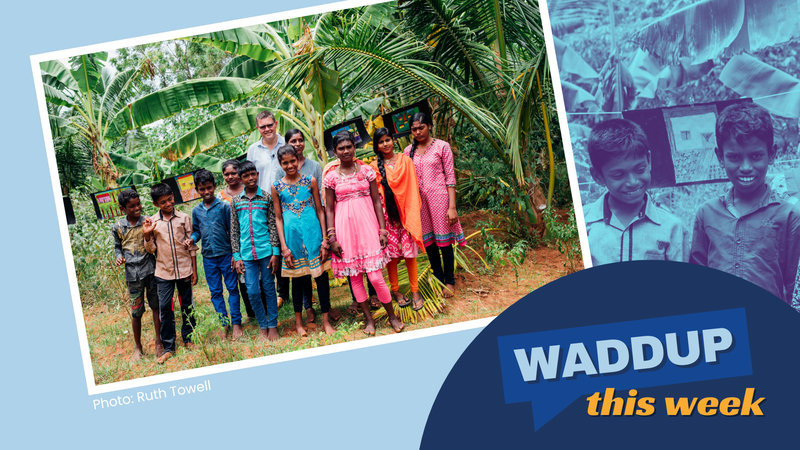The New Generation
Peter Waddup, CEO - The Leprosy Mission Great Britain
What does it take to bring about a generational shift? I’ve been pondering this question since World Health Day on Monday. This year's theme, chosen by the World Health Organization, is 'healthy beginnings, hopeful futures'. It sent my mind wandering down a new train of thought. Can we really consign leprosy to the history books in the lifetime of Gen Alpha, today's kids?
Adults can learn so much from children. Not only are they insanely fast learners but they tend to see people equally. They don't rank people by worth or really care about how they 'should' behave. Any prejudices picked up during their young lives are less ingrained. Instead they have highly-adaptable brains and a natural drive to explore and learn. Crucially they are more open to change. And a change in attitude is exactly what's needed when it comes to ending prejudice.
It got me thinking about the changes in society I have witnessed during my 60 years on planet earth. As a young football fan, I was exposed to terrible racism on the terraces. While I always knew it was wrong, it was the cultural norm and one I never dared to challenge. In fact nobody would dare challenge those cranking up the racial slurs.
Fifty years on and following high-profile campaigns like Kick It Out, the tide has turned. The racist chants that once blighted English football have, largely, been kicked out! Mercifully, culture on the terraces has transformed. Now anyone starting up a racist chant would be pointed out to the stewards by the majority of fans.
In some of the communities where we work prejudice surrounding leprosy is rife. It's hard for us in the UK to understand how a mildly-infectious and curable disease can destroy lives. But it can and does. Leprosy is entrenched in myths and misunderstandings. I've spent time with people who have been abandoned, poisoned and even set on fire by family members. All because they started to show the signs of leprosy.
So it is hardly surprising that a person clocking an early symptom of leprosy might choose to hide it. Inside they might feel turmoil. But it is far easier to cover up a suspect discoloured skin patch than endure the rejection they fear. Heartbreakingly, this begins a devastating vicious circle. All too often they go on to face the consequences they once only feared. Bearing the outward scars of leprosy, they are sentenced to a lifetime of exclusion.
Teaching children about leprosy and dispelling the myths surrounding it is a gamechanger. They are more open to the messaging. As a result they are far more likely to seek early treatment and live healthy lives. The sting is taken out of leprosy and it can finally be seen for what it is. A curable disease and not a curse for life.
The countries in which we work in Asia and Africa have a far younger population than we do in the UK. For example, in Mozambique, 52% of the population are under 18. This compares with just 17% in the UK. So we have a golden opportunity to reach a sizeable subsection of the population. We can harness their openness and willingness to learn. A ripple effect upwards to parents and grandparents can only follow.
I have witnessed some amazing work carried out by our team in Sri Lanka. Street theatre and community art are being used to teach youngsters about leprosy. The team are even going into schools to carry out talks and screening. As a result, hundreds of kids have been cured of leprosy before it got the chance to disable their young bodies. The team then educates and screens a young person's family and community for leprosy. They are taught that there is no reason for anyone to feel shame or be excluded. Prejudice surrounding leprosy in great swathes of Northern Sri Lanka has been significantly reduced!
I would love this pioneering awareness work to take place in all the communities in which we work. Ending prejudice is the most powerful weapon we have to end leprosy. Winning the hearts and minds of young people is a trailblazing way forward!
